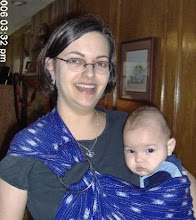In order to truly determine whether or not we should be offering (and performing) elective cesarean, aren't we obligated to determine it's safety or lack thereof? Obstetrical care in this country has a history of adopting technology into clinical practice before it is proven to be beneficial. The classic example is electronic fetal heart rate monitoring (EFM) in low risk pregnancies. Remember that EFM was going to prevent cerebral palsy (C.P.), because it was believed that C.P. was a result of "difficult labor" and decreased oxygen delivery to the fetal brain during labor and delivery. Before the near universal acceptance of EFM in this country, the incidence of C.P. in term neonates was 1-2/1000 and the cesarean delivery rate was 5-6%. Now the incidence of C.P. in term neonates is 1-2/1000 and the Cesarean delivery rate (overall) approaches 30%. Had EFM been subjected to rigorous randomized controlled trials in low risk pregnancies before it was adopted for use in this country, it is unlikely that the technology would have been embraced so readily. Now, however, the horse is out of the barn, and guess what; it ain't coming back. The same thing is likely to happen with elective cesarean delivery. Which means what 40 years down the road? Just consider these points for the sake of argument. I know many will disagree, but I would like to see an dispassionate debate on the topic: is a randomized clinical trial to address this issue (elective cesarean delivery) ethical or not?
Sunday, January 22, 2006
Elective Cesarean Birth
Red State Moron has a two-parter, More on elective cesarean birth and More on elective cesarean birth, 2. Among other things, RSM writes:
Subscribe to:
Post Comments (Atom)




No comments:
Post a Comment